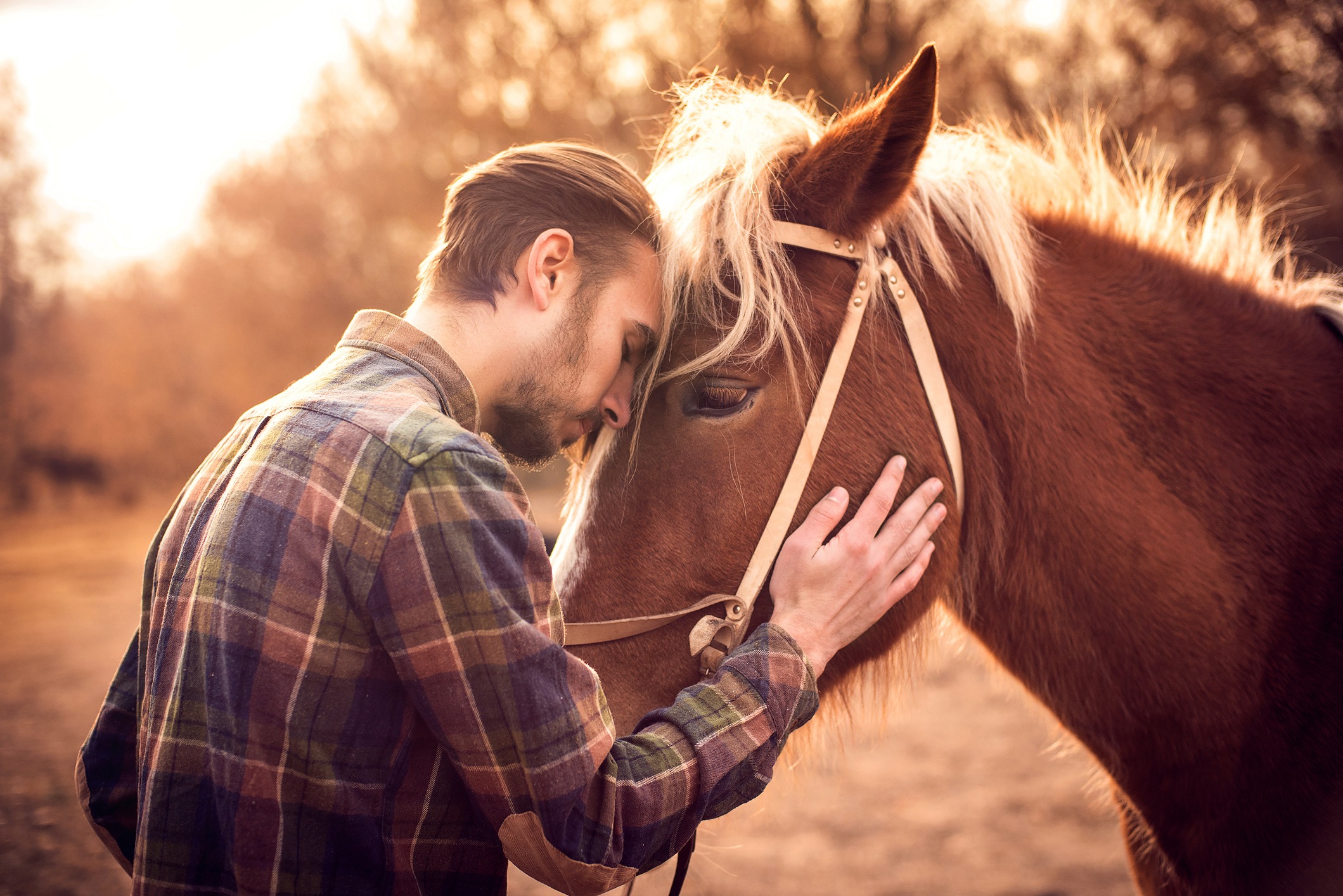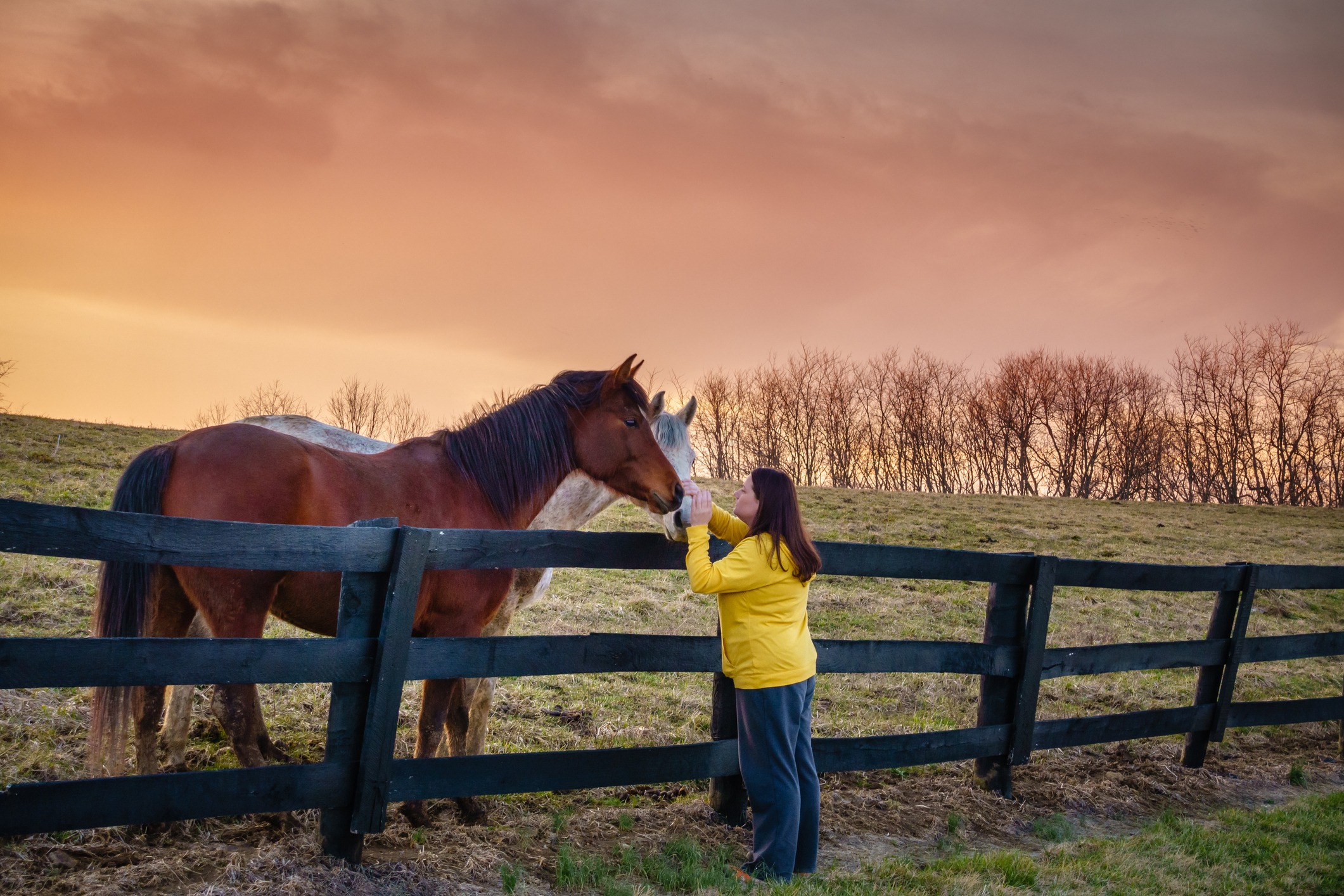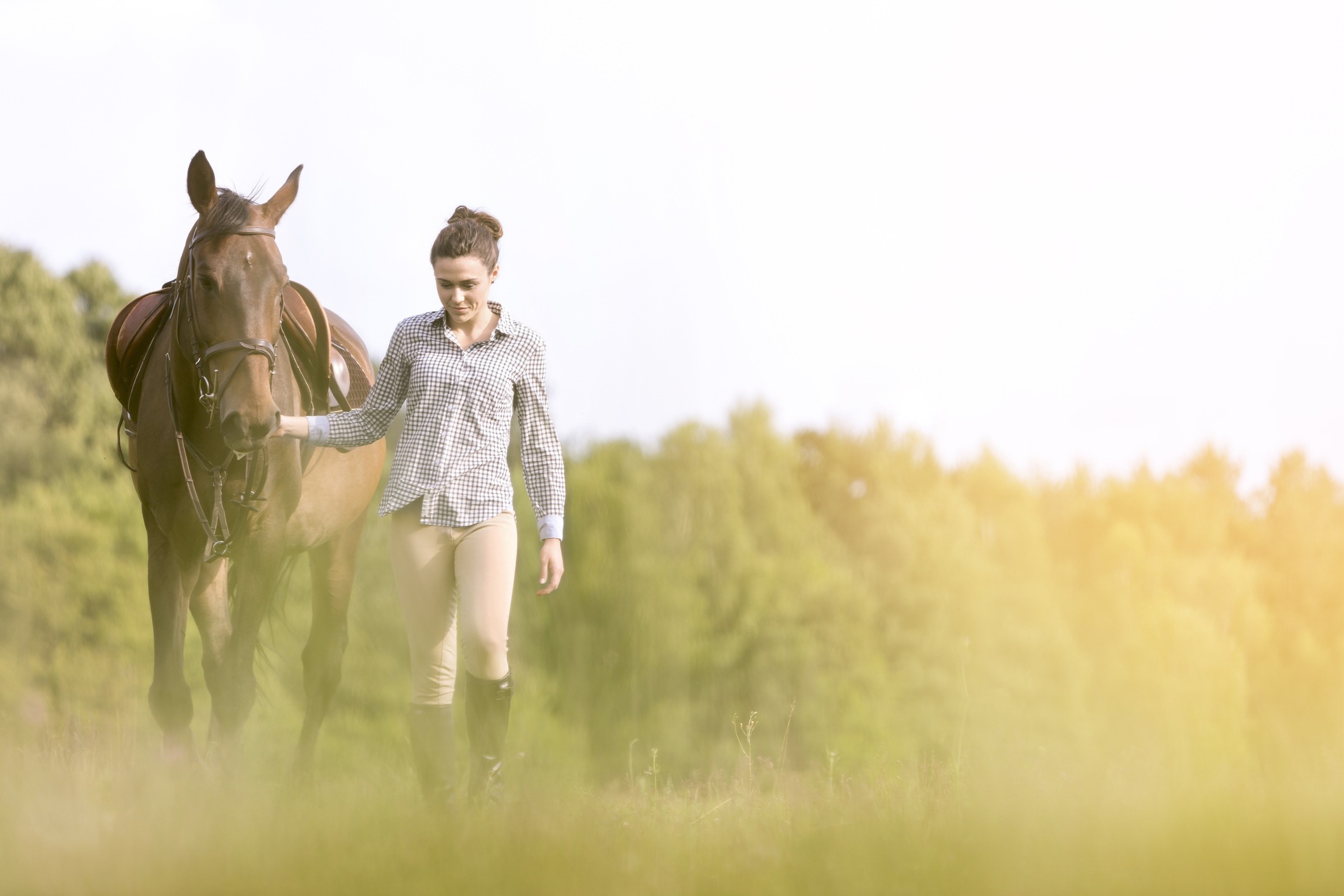Horses have been an integral part of human history for thousands of years. From their role in transportation and agriculture, to their significance in sports and leisure activities, horses have deeply impacted the lives of humans all over the world. But beyond their practical uses, there is a unique connection between horses and humans that goes far beyond any other domesticated animal.
This relationship has been studied and admired by scientists, philosophers, and equestrian enthusiasts alike, leading to a deeper understanding of the bond between these majestic creatures and the humans who cherish them.
The history of horses and their relationship with humans
The domestication of horses, which is believed to have occurred around 4000 BCE, was a monumental milestone in human civilization. Horses provided humans with a newfound mobility and power that had never been experienced before. They revolutionized transportation, allowing people to travel greater distances in a shorter amount of time. This newfound mobility also had a significant impact on trade, as goods could now be transported more efficiently and over longer distances.
Throughout history, horses played a crucial role in communication as well. They were the messengers, carrying vital information across vast distances. Horses were also instrumental in the military, serving as loyal companions to soldiers and playing a pivotal role in warfare.
Beyond their practical uses, horses have always held a special place in the hearts of humans. Horseback riding, for instance, has been proven to have numerous therapeutic benefits. The rhythmic motion of riding can be calming and soothing, reducing stress and anxiety. It can also improve balance, coordination, and core strength. Many individuals with physical or mental disabilities have found solace and healing through equine therapy programs.
Equestrian sports have also evolved over time, showcasing the enduring popularity of horses. From dressage to show jumping, these sports highlight the beauty, grace, and athleticism of both horse and rider. And of course, horse racing remains one of the most beloved and exhilarating sports in the world.
The therapeutic benefits of interacting with horses
One of the most profound benefits of interacting with horses is their calming effect on humans. Research has shown that spending time with these majestic creatures can have a soothing and stress-relieving effect on individuals. In a world filled with constant stimulation and pressure, being around horses offers a welcome respite, allowing us to unwind and find peace in their presence.
Equine-assisted therapy is another powerful way in which horses can aid in physical, mental, and emotional healing. Hippotherapy, for example, utilizes the movement of horses to improve coordination, balance, and strength in individuals with physical disabilities. Therapeutic riding, on the other hand, focuses on improving emotional well-being and cognitive abilities through horseback riding and related activities.
Working with horses also provides an opportunity to build trust and confidence. Horses are incredibly perceptive animals, capable of sensing our emotions and intentions. Through horse-human interactions, individuals can develop essential life skills such as communication, empathy, and assertiveness.
Perhaps one of the most remarkable aspects of engaging with horses is their ability to promote mental health. Horses have been found to be a powerful tool in managing mental health conditions such as anxiety, depression, and post-traumatic stress disorder (PTSD). The bond formed between humans and horses can provide a safe and non-judgmental space for individuals to express and process emotions. Scientific evidence supports the therapeutic benefits of equine-assisted activities, showing a decrease in symptoms and an improvement in overall mental well-being.
How horses can teach us important life lessons
Unlike humans, horses rely heavily on body language and nonverbal cues to understand and communicate with one another. They are incredibly perceptive animals, able to sense our emotions and respond accordingly. By observing and working with horses, we can become more aware of our own nonverbal communication and the impact it has on our interactions with others.
Building trust and establishing boundaries is another crucial lesson we can learn from horses. Developing a relationship with a horse requires trust, patience, and the establishment of clear boundaries. Horses teach us the importance of setting personal boundaries and earning trust through consistent and respectful behavior. These lessons can be applied to our relationships with other people, helping us establish healthier and more fulfilling connections.
Working with horses also teaches us the value of patience and resilience. Horses, like any other endeavor in life, come with their fair share of challenges and setbacks. Whether it’s learning a new riding technique or overcoming a behavioral issue, working with horses requires patience and perseverance.
Furthermore, interacting with horses can help us develop empathy and emotional intelligence. Horses are sensitive creatures, capable of mirroring our emotions and providing valuable feedback on our own emotional state. By learning to understand and respond to their cues, we can enhance our ability to empathize with others and navigate our own emotions more effectively.
The different ways humans connect with horses (riding, training, etc.)
Beyond the thrill of galloping through open fields or gracefully executing dressage movements, horseback riding has proven to have significant therapeutic benefits. For individuals with physical disabilities, riding can be a form of physical therapy, helping to improve balance, muscle strength, and coordination.
Horseback riding has been found to have profound psychological benefits for individuals with mental health conditions such as anxiety, depression, and post-traumatic stress disorder. The rhythmic motion of the horse, coupled with the peacefulness of nature, can create a calming effect and promote emotional well-being.
However, the connection between horses and humans goes far beyond the physical act of riding. The bond that can form between a horse and its rider is truly unique. It is built on trust, communication, and mutual respect. Horses are incredibly perceptive animals, and they can sense the emotions and intentions of their human counterparts.
Furthermore, horses have played a significant role in shaping human civilizations throughout history. From ancient times, when horses were used for transportation and warfare, to modern-day equestrian sports and recreational activities, horses have left an indelible mark on human society. They have symbolized power, freedom, and nobility, and have been revered in various cultures and mythologies. By exploring the historical and cultural significance of horses, we can gain a greater appreciation for the deep-rooted connection between humans and these magnificent creatures.
Current research and studies on the bond between horses and humans
In the recent years, researchers and scientists have been delving into the fascinating topic of the bond between these two species, uncovering some truly remarkable findings.
One area of research that has gained significant attention is the therapeutic benefits of equine-assisted therapy for individuals with mental health disorders. Spending time with horses can have a profound impact on individuals struggling with conditions such as depression, anxiety, and post-traumatic stress disorder.
Working alongside horses in therapy sessions has been found to reduce stress levels, increase feelings of calmness, and improve overall mental well-being. The non-judgmental nature of horses, combined with their ability to sense and respond to human emotions, creates a unique and powerful therapeutic environment.
Horses also play a crucial role in promoting emotional and social development in children and adolescents. Research has shown that interactions with horses can improve communication skills, empathy, and self-confidence in young people.
The act of horseback riding itself has been found to have physiological and psychological effects on humans. Riding a horse requires balance, coordination, and strength, which in turn can improve muscle tone, flexibility, and overall physical fitness. The rhythmic motion of a horse’s gait has been shown to have a calming effect on the rider, reducing stress and anxiety levels
Conclusion
It is evident that the bond between horses and humans goes beyond just a working relationship. Through centuries of coexistence, horses have become more than just a mode of transportation or a tool for labor. They have become trusted companions, therapy animals, and even family members. The connection between horses and humans is a testament to the power of mutual respect, understanding, and companionship.




